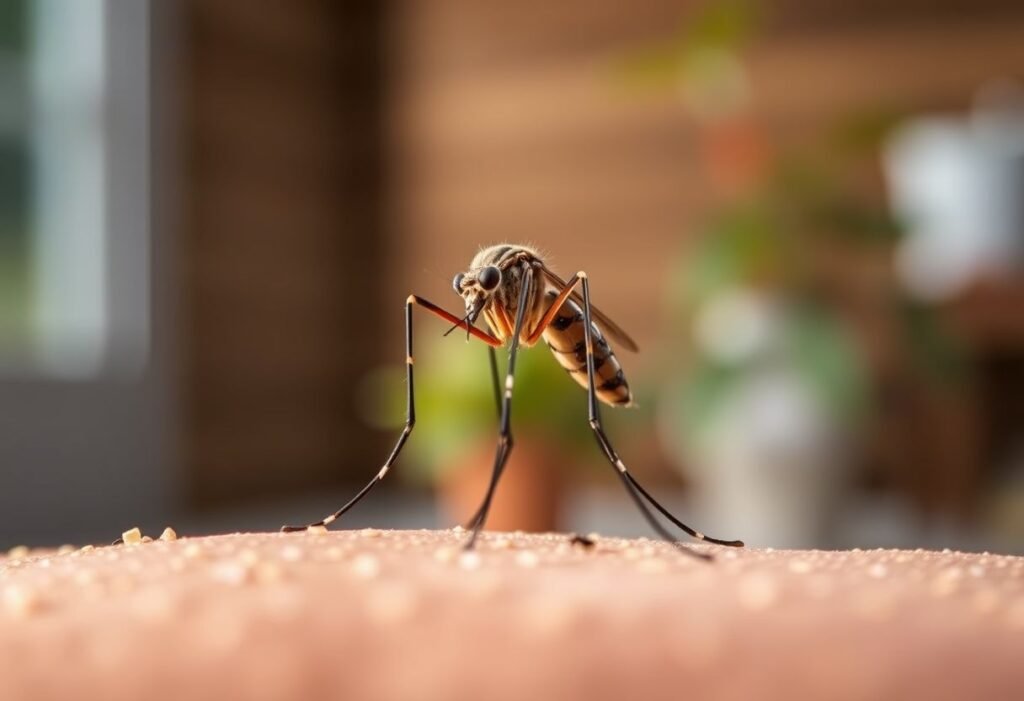Understanding the Mosquito Problem
Many of us wonder, how to get rid of mosquitoes in the house naturally and understand their behavior and breeding habits is the first step. Mosquitoes thrive in warm, humid environments, laying eggs in stagnant water. Even small puddles can become breeding grounds. By identifying potential breeding sites in and around your home, you can take proactive measures to eliminate them, thus significantly reducing mosquito populations.
Essential Oils: Nature’s Insect Repellent
One of the best natural solutions for the mosquito problem is using essential oils. Oils such as citronella, eucalyptus, and lavender are known for their mosquito-repelling properties. You can create your own natural insect repellent by mixing a few drops of essential oil with water in a spray bottle. A few spritzes around your home can make a significant difference, providing a pleasant fragrance while keeping pesky mosquitoes at bay.
Herbs and Houseplants That Repel Mosquitoes
Did you know that some plants can help with your quest on getting rid of mosquitoes? Herbs like basil, mint, and rosemary not only enhance your cooking but also serve as natural repellents. Planting these herbs on windowsills or in your garden can deter mosquitoes, offering a dual benefit of aroma and cooking convenience. Moreover, keeping potted lemon balm or marigolds can further enhance your home’s defense against these buzzing pests.
Homemade Traps for Mosquitoes
Creating homemade traps is another effective approach to eliminate mosquitoes naturally. A simple trap you can make involves mixing sugar, water, and yeast in a container. The yeast produces carbon dioxide, attracting mosquitoes to the trap. Place these traps strategically around your home, particularly in corners or near areas where you notice mosquitoes gathering. This DIY solution can help in reducing their numbers effectively.
Keeping Your Home Clean and Dry
One of the simplest ways to prevent mosquitoes is by maintaining cleanliness and dryness. Regularly check for any areas in your home that might collect water, especially in bathrooms and kitchens. Using a dehumidifier can be beneficial in humid climates. By ensuring that your home is clean and free from standing water, you’re making it less inviting to these insects.
Using Natural Insulation and Screens
Consider investing in proper window and door screens as a long-term solution for controlling mosquito populations. These screens provide a barrier without eliminating airflow. Additionally, sealing any cracks or openings in your home helps keep mosquitoes out effectively. Implementing these measures not only contributes to a mosquito-free environment but also enhances energy efficiency in your home.
The Role of Lighting in Your Home
Did you know that the type of lighting you use can influence mosquito attraction? Yellow-tinted bug lights are less attractive to mosquitoes compared to traditional bulbs. Swapping out your outdoor lighting with yellow bulbs can help reduce mosquito presence during evenings and summer nights, creating a more pleasant atmosphere for you and your guests while you discover how to get rid of mosquitoes naturally.
Creating a Barrier with Fans
Another powerful method of keeping mosquitoes at bay is utilizing fans. Mosquitoes are weak flyers, and introducing a strong airflow can significantly deter them. Placing outdoor fans in patios or outdoor dining areas can create a formidable barrier against these pests while providing a cooling breeze for your summer gatherings.
Podsumowanie
In conclusion, while mosquitoes may be an inevitable part of warmer seasons, taking proactive steps with natural remedies can significantly reduce their impact on your home. By employing these methods on how to get rid of mosquitoes in the house naturally, you can enjoy your indoor and outdoor spaces without the disturbance of these unwelcome insects. Don’t let mosquitoes spoil your summer fun—try integrating these tips into your routine today!
Disclaimer
The information provided here is for educational purposes only and should not substitute for professional pest control advice.

















